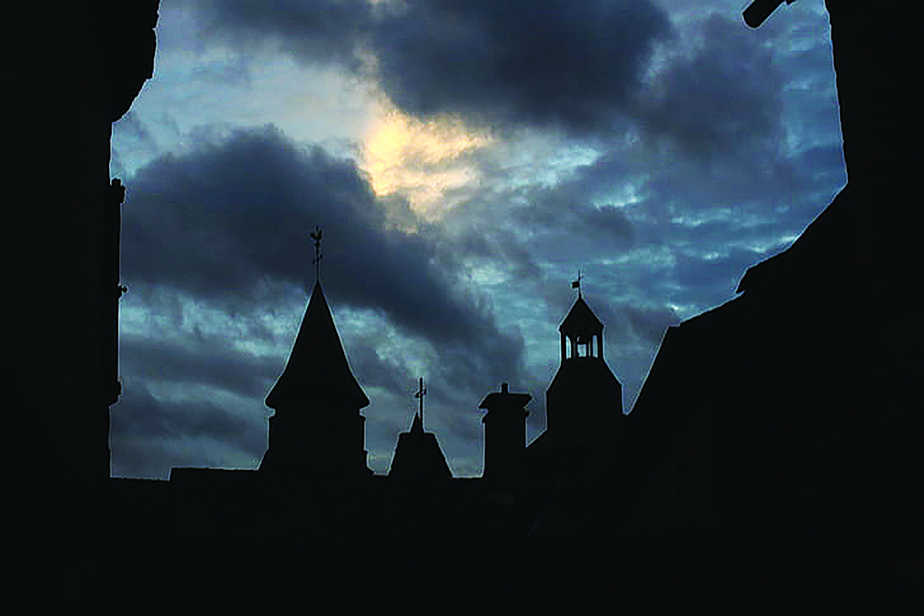Churches are found to be involved in sex scandals all over the world, not just in India, so much so that Pope Francis has sought forgiveness for keeping quiet
A woman in Kerala demands justice against a bishop — a sexual offender. This sex scandal has hogged the limelight for some time. There’s a great resistance within the Church to take action against one of its top functionaries. The brewing controversy has led some of the nuns to come out in the open to protest.
The tragedy is that this is not the only case. A spate of sex scandals has come to the fore, exposing the sinister side of the clergy. In less than two years, a dozen priests in Kerala have been accused of committing sexual offences. Why just pinpoint the southern part of India? Such cases have been reported from all over the world.
The underbelly of Church hides a sinister reality. Recently, it came to light that the Dutch Catholic Church is involved in a similar controversy and, in another much publicised incident, Pope Francis had to expel a Chilean priest for the same reason. This action taken in one case however cannot smokescreen the tendency of the Church, in order to protect its good name, to shield sexual predators. This is despite growing support for reform of the Church, which religious leaders continue to resist.
A sexual offence is a behavioural crime. A priest only gets emboldened when he holds a position of influence that gives him a sort of impunity. The law of the land doesn’t apply in full measure inside the citadels of a Church.
This particular case in Kerala will exemplify the extent of sexual exploitation behind impregnable walls. Not one or two but four priests of the Malankara Orthodox Syrian Church are facing charges of raping and blackmailing a woman. This abusive liaison continued for 20 years. The victim, a married woman, was intimidated and threatened while she was being raped repeatedly and periodically. This cycle of abuse started when she was still a minor by an Orthodox priest at a church. The 34-year-old woman finally informed the local police.

Why is the police dragging its feet in this and other such cases of sexual abuse? The church is also reluctant to act. In Kerala, the Church is fairly influential with its network of educational and health institutions. The Church’s proximity to politicians is one of the reasons behind the slow investigation, as Christians are about one-third of the total population in the state. Churches have strong political clout and are a force to reckon with.
Finally, the two clergymen— father Sony Varghese and Father Jaise K George —surrendered before Thiruvalla Sessions court, only after the Supreme Court—a bench of Justices AK Sikri and Ashok Bhushan— rejected their anticipatory bail pleas and directed them to surrender. They had allegedly uploaded some objectionable videos on the Internet, as per victims’ lawyer, which was used earlier to blackmail the victim to submission.
Sister Jesme, 63, wrote the controversial book Amen that details the infrastructure of abuse that a section of the Church has become. Now ostracised, not just by the church but also by her family, she lives in a small flat in Kozhikode. This was the price she paid to refuse abuse in the name of laid norms. She didn’t compromise like many do. She asked the hard questions — picking up the pen was her way of returning the favour.
Her book gives details, her own life being the example, of how girls have to silently endure at the nunnery, when some priests sexually abuse nuns. Even the young men, sub-adults are not safe. Abusive homosexuality is rampant.
A crime psychologist who doesn’t want to be named – citing psychotherapist-patient privilege—was made a bizarre request by a leading Church in northern India. He has been providing counselling to rape victim and is an expert in understanding of mind of a rapist. He was hired to monitor a preacher, a European by origin, who was transferred from his home country to Delhi. He had been accused of and found indulging in acts of paedophilia. The only action taken against him was that he was transferred to Delhi and put on some sort of psychological surveillance. This designated psychologist would hold regular sessions with him.
Within a year, the preacher informed the psychologist about having managed to establish sexual liaisons with few young boys from poorer background. “They just can’t control themselves,” says the psychologist. The matter was duly reported to the higher authorities in the administration of the Church. They warned him but he didn’t mend his ways. This time the action taken was the same as before: the preacher was transferred to a far-flung place in Africa. No punishment or even exposure.
There is growing evidence of sexual abuse by the clergy all over the world. Most recently, a study commissioned by the Roman Catholic Church bishops’ conference in Germany found that at least 1,670 church workers had been involved in the abuse of 3,677 children, aged 13 or younger. That is 4.4 per cent of the clergy in the last seven decades. Research by the John Jay College of Criminal Justice commissioned by the Bishops in the United States in 2004, found 4,392 priests with allegations of abuse, and 10,667 alleged victims from 1950 to 2002. Similarly, in Australia, a royal commission that investigated child abuse in many religious institutions, including the Catholic Church, found that between 1980 to 2015, 1,880 church employees — mostly priests — were suspected of abusing 4,444 alleged victims. A similar study should be carried out in India.
This situation in the Catholic Church has reached a critical mass. Pope Francis has issued an unprecedented call to the world’s top bishops to meet with him in Rome to discuss the protection of minors in February next year. The New Yorker writes this week, “What in Catholic culture caused this debauchery? The proximate cause concerns essential mistakes of moral theology, including the stigmatizing of normal erotic longing and the sanctifying of prejudice against women and homosexuals.”
While meeting an Irish abuse victim in Ireland last week, Pope Francis sought forgiveness for failings of the Church. “We ask forgiveness for the times that we did not show [abuse] survivors compassion or the justice they deserve in the search for truth…we ask forgiveness for members of the Church hierarchy who did not take care of these situations and kept quiet.”
With the credibility of the Church at an all-time low in dispensation of justice, it’s time victims seek justice themselves — like the brave woman in Kerala.





